Nutritionists Say This Drink Can Help with Bloating Instantly

Is painful bloating making you miserable? The condition is common, with up to 25% of people reporting occasional bouts of abdominal bloating. “The most common cause of stomach pain and bloating is excess intestinal gas,” says the Cleveland Clinic. “If you get a bloated stomach after eating, it may be a digestive issue. It might be as simple as eating too much too fast, or you could have a food intolerance or other condition that causes gas and digestive contents to build up. Your menstrual cycle is another common cause of temporary bloating.” If bloating is making you miserable and you’ve ruled out any medical conditions, one specific drink can make you feel instantly better. Here’s what nutritionists say.
RELATED: 9 Surprising Reasons You’re Bloated.
Green Tea For Bloating
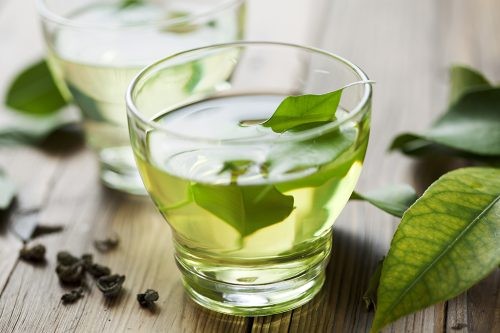
If you want to relieve symptoms of bloating quickly, green tea is an excellent option. Green tea is packed with antioxidants that help bring down bloating and keep it down. “The antioxidants help reduce inflammation in the gut, while the polyphenols help to act as a prebiotic or ‘food ‘ for your gut bacteria,” Sarah Logan, MS, RD, CPT, tells Parade. “In addition, the catechins are able to help the gut microbiota create a better gut environment to help manage bloating in the future.”
Good Bacteria and Bad Bacteria
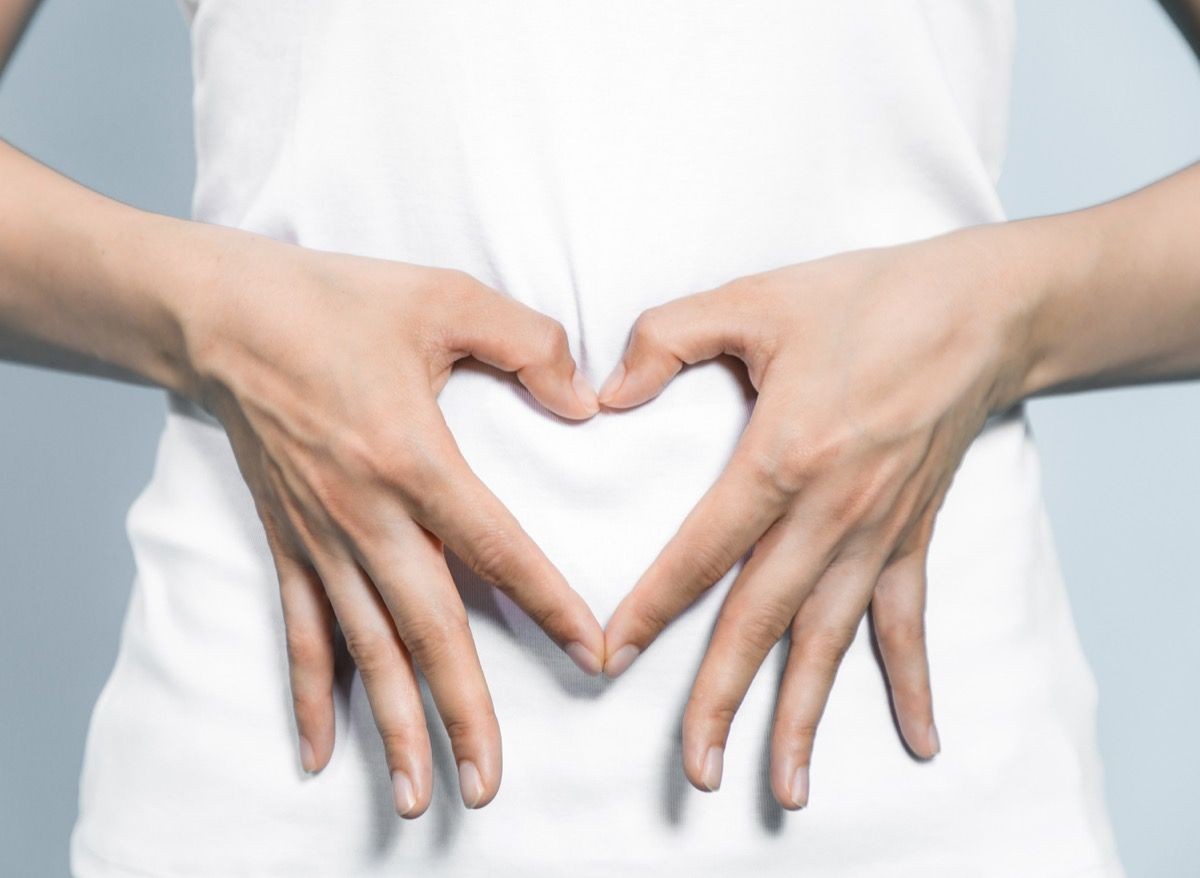
Green tea helps support the good bacteria in your gut. “In our gut, there are good bacteria living there and bad bacteria, making up our entire gut microbiota,” Logan says. “Think of it as a community, and our intestines are the big neighborhood they live in. Green tea helps to multiply the good bacteria that help us fight off disease, but also reduces the population of the bad bacteria at the same time.”
It Works Fast
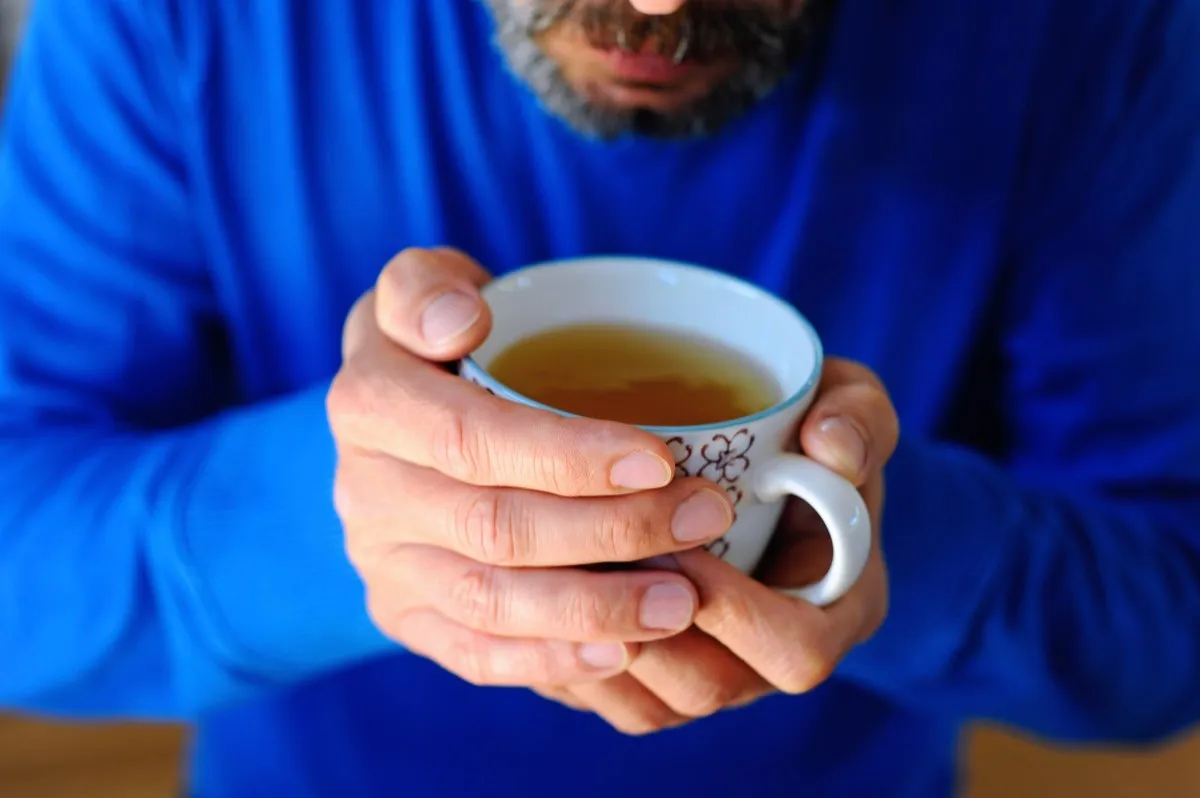
The nature of green tea being a liquid makes it an ideal de-bloater, experts say. “Green tea — an unfermented tea — is rich in polyphenolic compounds, [and] possesses antioxidative, anti-inflammatory, and antibacterial effects,” Dr. Natasha Fuksina, MD, tells PopSugar.
“Liquids pass into the stomach immediately and reach the intestines within minutes. Depending on the amount of food in the intestines, it may take from 10 to 30 minutes for the tea to help relieve bloating symptoms.”
RELATED: 4 Best Fruits for Bloating, Science Shows.
But Wait, There’s More
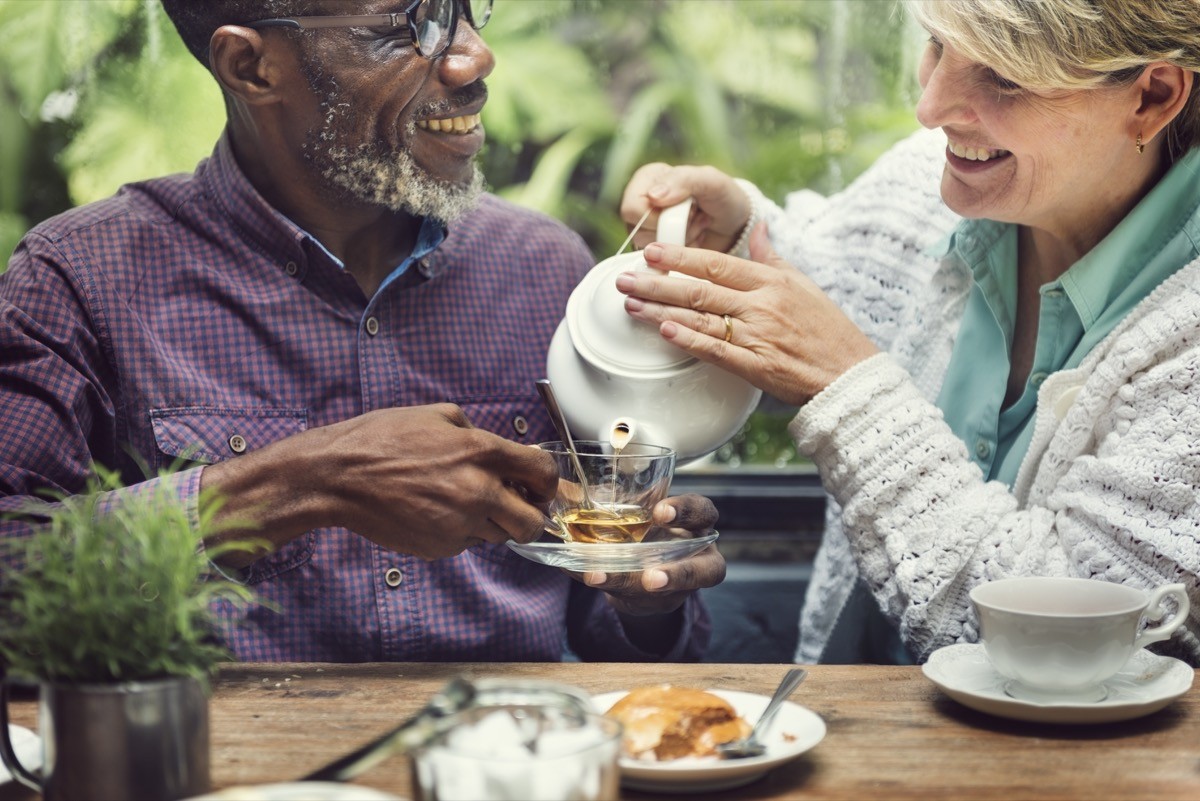
Green tea is good for more than just de-bloating—one study from The Ohio State University shows green tea can reduce the risk of metabolic syndrome. “There is much evidence that greater consumption of green tea is associated with good levels of cholesterol, glucose and triglycerides, but no studies have linked its benefits at the gut to those health factors,” said Richard Bruno, senior study author and professor of human nutrition at The Ohio State University. “What this tells us is that within one month we’re able to lower blood glucose in both people with metabolic syndrome and healthy people, and the lowering of blood glucose appears to be related to decreasing leaky gut and decreasing gut inflammation – regardless of health status.”
What About Caffeine?
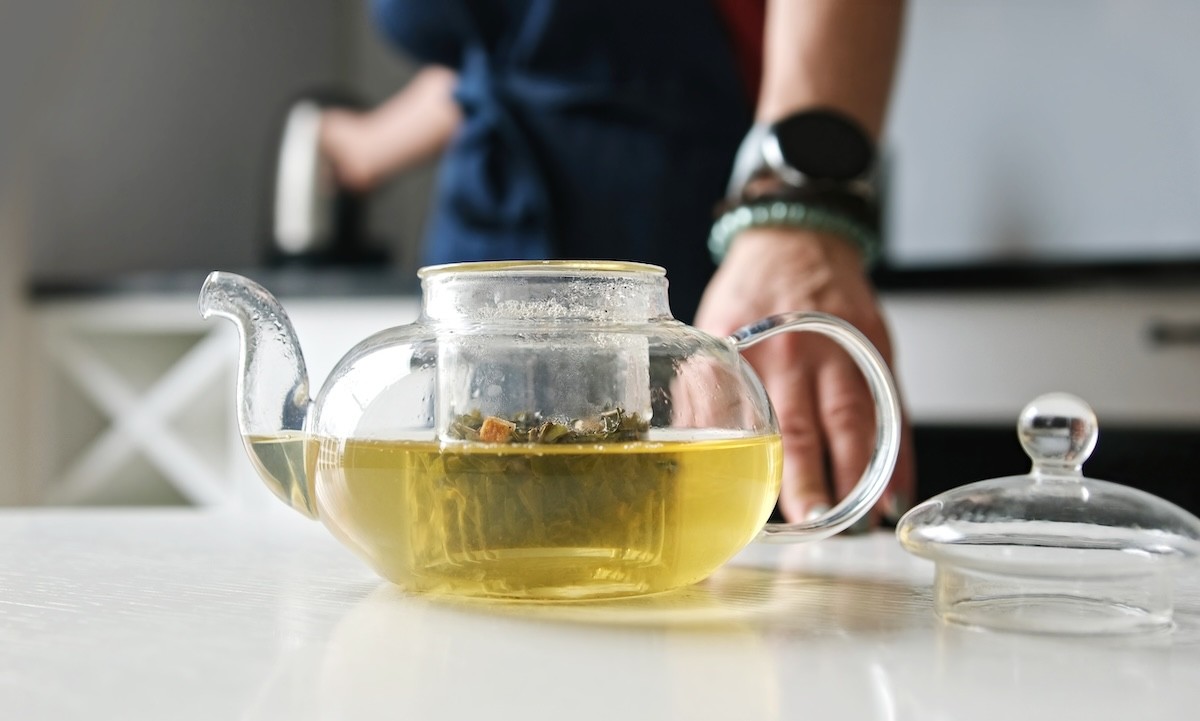
Most people should be able to tolerate the caffeine in freshly-brewed green tea. “It does not contain as much as one might think,” Bruno says. “At approximately 30-40 mg per cup of brewed tea, it is about three to four times lower than that in a cup of coffee (80-120 mg). Unless someone is sensitive to caffeine, the amount of caffeine in several cups of tea would be well-below limits where adverse effects (e.g., jitters, overstimulation) would be expected.”